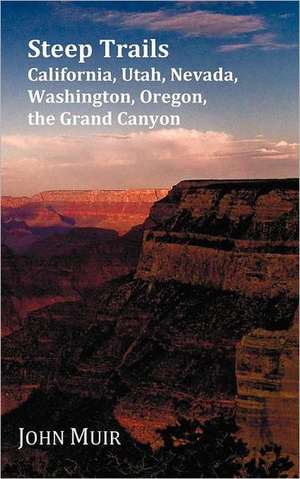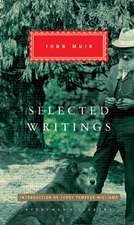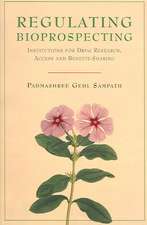Steep Trails - California, Utah, Nevada, Washington, Oregon, the Grand Canyon: The Prince of the Road, (or the Black Rider of the Black Hills)
Autor John Muiren Limba Engleză Hardback – 26 sep 2011
Preț: 146.30 lei
Nou
Puncte Express: 219
Preț estimativ în valută:
27.100€ • 28.92$ • 23.30£
27.100€ • 28.92$ • 23.30£
Carte tipărită la comandă
Livrare economică 25 martie-08 aprilie
Preluare comenzi: 021 569.72.76
Specificații
ISBN-13: 9781849022835
ISBN-10: 1849022836
Pagini: 208
Dimensiuni: 152 x 229 x 16 mm
Greutate: 0.48 kg
Editura: Benediction Classics
ISBN-10: 1849022836
Pagini: 208
Dimensiuni: 152 x 229 x 16 mm
Greutate: 0.48 kg
Editura: Benediction Classics
Notă biografică
John Muir (April 21, 1838 - December 24, 1914) was a Scottish-American naturalist, author, environmental philosopher and early advocate of preservation of wilderness in the United States. His letters, essays, and books telling of his adventures in nature, especially in the Sierra Nevada mountains of California, have been read by millions. His activism helped to preserve the Yosemite Valley, Sequoia National Park and other wilderness areas. The Sierra Club, which he founded, is a prominent American conservation organization. The 211-mile (340 km) John Muir Trail, a hiking trail in the Sierra Nevada, was named in his honor.[2] Other such places include Muir Woods National Monument, Muir Beach, John Muir College, Mount Muir, Camp Muir and Muir Glacier. In Scotland, the John Muir Way, a 130 mile long distance route, was named in honor of him.
In his later life, Muir devoted most of his time to the preservation of the Western forests. He petitioned the U.S. Congress for the National Park bill that was passed in 1890, establishing Yosemite National Park. The spiritual quality and enthusiasm toward nature expressed in his writings inspired readers, including presidents and congressmen, to take action to help preserve large nature areas. He is today referred to as the "Father of the National Parks" and the National Park Service has produced a short documentary about his life.
In his later life, Muir devoted most of his time to the preservation of the Western forests. He petitioned the U.S. Congress for the National Park bill that was passed in 1890, establishing Yosemite National Park. The spiritual quality and enthusiasm toward nature expressed in his writings inspired readers, including presidents and congressmen, to take action to help preserve large nature areas. He is today referred to as the "Father of the National Parks" and the National Park Service has produced a short documentary about his life.








